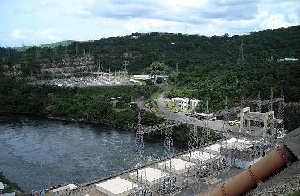Business News of Wednesday, 17 December 2014
Source: B&FT
Afreximbank to invest US$400m in energy sector
The African Export Import Bank (Afreximbank) is to invest US$400million in the country’s energy sector within the coming years, as the sector yearns for investment to bridge the growing power demand.
The Executive Vice President of Afreximbank, Dr. Okey Oramah, said: “In the power sector, across the continent there is deficit, and there are two factors driving the deficit -- the lack of investment for generation, transmission and distribution, and growing demand.
“The growing demand is good because it’s coming from the rapid growth in the economy over the past 15yrs. We are looking at investing US$400million in the power sector in the country. We are looking the generation side.”
Afreximbank, which has provided support to various financial institutions in the country, has ventured into energy finance in Ghana with the signing of a US$150million facility agreement with the Volta River Authority (VRA) -- a deal arranged by C- Nergy Ghana Limited, a subsidiary of C-Nergy Global Holdings (Pty) Limited, a South African- based investment advisory services firm.
Independent power producers like CENIT are expected to benefit from Afreximbank’s energy finance programme in the country.
Electricity demand has been growing by 10 percent year-on-year for the past couple of years. However, power producers are unable to keep up with the domestic consumption-led growth in demand given the huge capital required to bring on-stream more thermal generation.
Government has also been unable to commit the needed resources to expand generation given its limited budget.
The power situation this year is also compounded by the lack of inflow into the Akosombo and Bui Dams. The situation has forced the Authority to shut down two of the six turbines at the Akosombo Generating Station in order to maintain the dam’s integrity.
The lack of enough generation in the system has prompted an electricity load-shedding regime, much to the dismay of industrial consumers.
The start of gas processing in the Western Region is expected to help bridge the shortfall in hydro generation, but not necessarily to correct the deficit in power generation.











